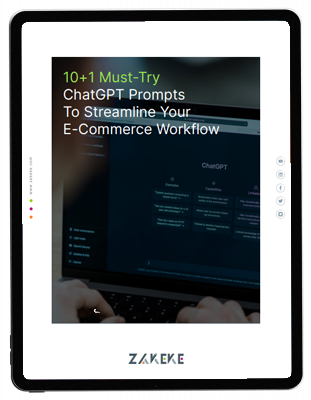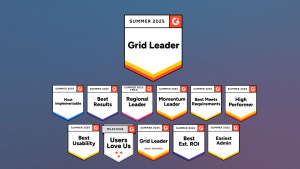Running a successful e-commerce store isn’t just about having a website that works; it’s about creating a smooth, enjoyable experience for your customers while also managing your operations effectively behind the scenes. That’s where plugins come into play. They’re the tools that help streamline everything, from making the checkout process smoother to boosting your search engine rankings.
But with so many options available, how do you know which plugins are worth your time? In this article, we’ll explore the 10 best e-commerce plugins that can take your online store from “just okay” to “wow, this is amazing!”
Why Plugins Matter
Think of plugins as the extra tools in your digital toolbox – they add the finishing touches that make your site easier to use, faster, and more secure. The right combination of plugins can help you increase sales, improve user experience, and even manage tedious backend tasks like inventory and customer data. Whether you’re selling physical products, digital downloads, or offering memberships, plugins are like the secret sauce that helps e-commerce stores run better. Start by identifying your pain points, such as cart abandonment or SEO, and match them with specific plugins that solve those challenges.
What We Looked For
When choosing these plugins, we considered:
- Compatibility: They should work smoothly with your existing e-commerce platform (like WordPress);
- Ease of Use: No one has time to spend hours figuring out how a plugin works;
- Performance Impact: Your site’s speed shouldn’t suffer because of a plugin;
- Value for Money: Free plugins are great, but sometimes a premium option offers so much more that it’s worth the cost.
We focused on plugins that enhance your store’s security, SEO, customer engagement, and overall sales performance. To avoid unnecessary strain on your site, keep track of each plugin’s performance and remove any that aren’t adding real value.
10 Best E-commerce Plugins
1. Zakeke
If you’re looking to take your e-commerce store to the next level with powerful visual and interactive shopping experiences, Zakeke is a standout plugin that deserves a spot on your list. Trusted by over 10,000 e-merchants, Zakeke enables merchants to offer their customers immersive, personalized experiences. With Zakeke, shoppers can personalize products in real-time, view items in stunning 3D, try on products virtually with AR and Virtual try-on.
What makes Zakeke especially popular is its cloud-based, no-coding-necessary setup and seamless integrations with major platforms, making it a plug-and-play option for businesses of all sizes. Zakeke allows merchants to offer more than the ordinary shopping experience. Customers will be able to create their dream products in real-time with unlimited customization options, see them in hyper-realistic 3D and put them in real spaces with AR and Virtual try-on. If you’re aiming to elevate customer engagement and drive conversions through enhanced product interaction, Zakeke is a must-try.
2. ClickPost
ClickPost.ai provides a comprehensive suite of eCommerce plugins designed to enhance logistics and customer experience for online stores. Notably, the ClickPost Plugin integrates seamlessly with WordPress-based eCommerce sites, providing multi-carrier shipping capabilities, automated carrier selection through machine learning, and branded tracking pages to keep customers informed throughout their purchase journey.
Beyond WooCommerce, ClickPost supports integrations with various eCommerce platforms, including Shopify, Magento, and BigCommerce. These integrations facilitate efficient order management, real-time shipment tracking, and automated notifications, ensuring a streamlined post-purchase experience for customers.
By implementing ClickPost’s plugins, online retailers can optimize their shipping processes, reduce operational complexities, and significantly improve customer satisfaction through transparent and efficient logistics management.
3. WooCommerce
If you’re using WordPress, WooCommerce is practically a no-brainer. It’s the go-to plugin for turning a basic WordPress site into a fully functional e-commerce store. Whether you’re selling clothes, gadgets, or even services, WooCommerce is incredibly flexible and scalable. You can customize it with hundreds of extensions that allow you to add just about any feature you need – think payment gateways, shipping options, or even custom product pages.
One of the best parts? You can start small and grow as needed. It’s like building your online store from scratch but with a foundation that’s already sturdy. Ensure you regularly check for WooCommerce updates and compatible extensions to keep your store running smoothly.
4. Yoast SEO
You’ve probably heard the term “SEO,” but optimizing your site for search engines can feel like a full-time job. Yoast SEO takes away the guesswork. It helps you fine-tune your content to ensure your pages rank well on Google and other search engines. With features like keyword analysis, readability checks, and meta tag editing, Yoast SEO gives you all the tools you need to improve your organic traffic.
Think of it as your personal SEO assistant, guiding you on what to fix so your store shows up when customers search for your products. Make it a habit to update your e-commerce SEO strategies based on Yoast’s regular content insights, ensuring your product pages stay optimized as search algorithms evolve.
5. Easy Digital Downloads
If your business revolves around digital products like eBooks, software, or even music, Easy Digital Downloads (EDD) is a plugin you’ll love. Unlike WooCommerce, which is more of a jack-of-all-trades, EDD focuses on making the process of selling digital goods seamless. You get everything from secure file delivery to customer management, and it’s super easy to use.
Let’s say you’re a musician selling digital albums. EDD lets your customers purchase and download your music instantly, while you track sales and manage everything without a hitch. Be sure to take advantage of its reporting features to understand which products are performing best and adjust your offerings accordingly. The plugin even integrates well with analytics tools to show you metrics like who clicked Instagram link on your promotional posts, providing deeper insights into your marketing efforts.
6. MemberPress
Selling memberships or premium content? MemberPress is the tool that can help you do it. Whether you’re offering exclusive courses, gated content, or subscription-based services, this plugin gives you full control over who sees what and when. You can create different membership levels and integrate payment options like PayPal or Stripe for recurring payments.
Imagine running a fitness website where only paying members get access to workout videos. MemberPress handles everything from managing memberships to ensuring secure access. To boost engagement, consider bundling premium content into various membership levels and offering limited-time discounts for new sign-ups.
7. WPForms
Forms are a crucial part of any online store. Whether it’s a simple contact form, a survey, or a newsletter sign-up, WPForms makes it easy to create and manage all kinds of forms. The drag-and-drop interface means you don’t need to know any code to build them.
Want to collect customer feedback after a purchase? You can set up a form with just a few clicks. WPForms also integrates with popular email marketing platforms, allowing you to grow your email list without any fuss. Regularly review your form responses to gauge customer satisfaction and adjust your approach based on the feedback.
8. OptinMonster
Getting traffic to your site is one thing – converting that traffic into paying customers is another. OptinMonster is designed to help with that. This plugin lets you create targeted pop-ups, slide-ins, and email capture forms to turn visitors into subscribers and customers. Its exit-intent technology is particularly useful – it detects when someone is about to leave your site and triggers a pop-up offering a discount or incentive to stay.
For example, if someone is about to abandon their cart, a timely message offering free shipping might just convince them to complete the purchase. Regularly analyze your OptinMonster campaign reports to tweak and improve conversion rates.
9. TrustPulse
Ever noticed those little notifications on websites that say, “John from New York just purchased this product”? That’s social proof, and TrustPulse specializes in it. By displaying real-time customer actions, like purchases or sign-ups, you can build trust with new visitors and encourage them to make a purchase too.
It’s a subtle but effective way to let your potential customers know that other people are buying from you, which often results in higher conversions. Ensure you tailor the notifications to display relevant product actions that resonate with your visitors.
10. Ecwid
If you’re looking for an easy way to sell across multiple platforms – like Facebook, Instagram, and your own website – Ecwid is a great option. This plugin syncs your inventory across all your selling platforms, so you can manage everything from one place. It’s perfect for small to medium-sized businesses that want to expand their reach without getting overwhelmed.
The freemium model is also a plus: you can start with basic features for free and then upgrade as your business grows. Plan to regularly monitor Ecwid’s inventory syncing to ensure smooth operations across platforms, especially during peak sales periods.
10+1. CartFlows
Cart abandonment is one of the biggest challenges in e-commerce. CartFlows helps you tackle this problem head-on by optimizing the checkout process. You can create custom sales funnels, offer one-click upsells, and simplify the checkout experience, making it easier for customers to complete their purchases.
Let’s say you sell workout gear. With CartFlows, you could offer a special discount on yoga mats after someone buys a pair of leggings, all in a smooth, non-intrusive way that doesn’t interrupt their buying flow. Run A/B tests on different checkout processes to find the one that reduces abandonment the most. Similarly, think about optimizing other areas of your store for clarity and engagement. Just as crafting a TikTok bio requires focusing on key details to attract the right audience quickly, your checkout pages and product descriptions should be streamlined and targeted to make the buying experience as intuitive as possible.
Conclusion
The right plugins can transform your e-commerce store into a powerhouse of efficiency and user satisfaction. Think about what your store needs most – whether it’s better SEO, smoother customer interactions, or better product interactions – and start integrating these best e-commerce plugins to see immediate results.
Don’t overwhelm your site with too many tools at once. Pick the plugins that align with your business goals and grow from there. Always keep track of how each plugin performs and be prepared to make adjustments as needed for optimal results.


















